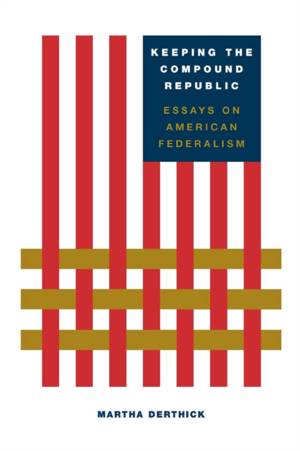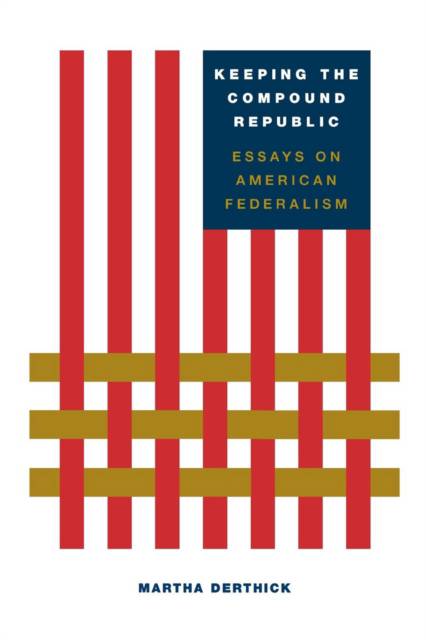
- Retrait gratuit dans votre magasin Club
- 7.000.000 titres dans notre catalogue
- Payer en toute sécurité
- Toujours un magasin près de chez vous
- Retrait gratuit dans votre magasin Club
- 7.000.0000 titres dans notre catalogue
- Payer en toute sécurité
- Toujours un magasin près de chez vous
Description
The framers of the U. S. Constitution focused intently on the difficulties of achieving a workable middle ground between national and local authority. They located that middle ground in a new form of federalism that James Madison called the ""compound republic."" The term conveys the complicated and ambiguous intent of the framing generation and helps to make comprehensible what otherwise is bewildering to the modern citizenry: a form of government that divides and disperses official power between majorities of two different kinds--one composed of individual voters, and the other, of the distinct political societies we call states. America's federalism is the subject of this collection of essays by Martha Derthick, a leading scholar of American government. She explores the nature of the compound republic, with attention both to its enduring features and to the changes wrought in the twentieth century by Progressivism, the New Deal, and the civil rights revolution. Interest in federalism is likely to increase in the wake of the 2000 presidential election. There are demands for reform of the electoral college, given heightened awareness that it does not strictly reflect the popular vote. The U. S. Supreme Court, under Chief Justice William H. Rehnquist, has mounted an explicit and controversial defense of federalism, and new nominees to the Court are likely to be questioned on that subject and appraised in part by their responses. Derthick's essays invite readers to join the Court in weighing the contemporary importance of federalism as an institution of government.
"Spécifications
Parties prenantes
- Auteur(s) :
- Editeur:
Contenu
- Nombre de pages :
- 208
- Langue:
- Anglais
Caractéristiques
- EAN:
- 9780815702030
- Date de parution :
- 01-09-01
- Format:
- Livre broché
- Format numérique:
- Trade paperback (VS)
- Dimensions :
- 153 mm x 229 mm
- Poids :
- 290 g

Les avis
Nous publions uniquement les avis qui respectent les conditions requises. Consultez nos conditions pour les avis.






